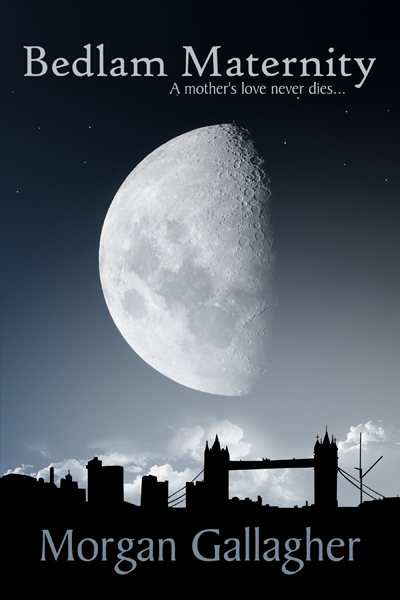by Shane Lange:
Scottish author Morgan Gallagher wants to make one thing clear: her new novel is not a baby book of horror. “Although it’s called Bedlam Maternity,” she says, “it isn’t about babies – it’s about how mothers are treated in the system, and about power and control. And,” she adds comically, “I can assure you that no baby was harmed in the making of it.”
It is a cold December night on the Scottish Borders and Gallagher is speaking to me from her home overlooking the North Sea, on the east coast of Scotland. She assures me, on this dark and stormy night, that her sense of humour is black by default. “The Scots are pretty dour and pretty cynical and have a big streak of darkness in them, so we like things like that.” She is referring to the novel’s opening scene, in which a pair of Scottish doctors abducts and murders a pregnant woman to further scientific studies in the 18th century. She says, “Stealing bodies for medical experiments was very much done in Scotland and was perpetrated by Scottish doctors. That historical fact is terribly, terribly real.”
During the same period this grisly practice was also carried out in London, which is in turn the modern-day setting for Bethlehem Maternity Hospital. The book’s title, says Gallagher, “literally came from, just one afternoon, the name ‘Bedlam Maternity’ popping into my head.” As a term for chaos and cacophony, the word “bedlam” originates from the nickname of the real Bethlehem Hospital, an institution for mental illness that was notorious in previous eras for its unsavory treatment of patients. “Just putting the words ‘bedlam’ and ‘maternity’ together was such a contrast; as soon as I thought of it, I wondered, ‘How would that work?’ and then I had to go and search for a story that would make it work.”
I think the whole point about horror is, human beings survive far worse than any horror story…
Although the story is a departure from Gallagher’s vampire fiction in the Dreyfuss Trilogy, one can detect in its pages the influence of that series’ dark, obsessive nightmare world, along with insights from Gallagher’s personal experiences of the U.K. national health system. “Basically I was just writing a story that speaks of women’s current experiences of pregnancy, and birthing care in modern hospitals can be very, very appalling – there’s the phrase ‘birth rape’, from the fact that some women feel like they don’t have any control of their bodies in hospitals, and that bad things happen.”
The main character, Rose Templar, is a midwife at Bedlam Maternity in East London. Through the lens of her occupation we see how the system works and that, within its power structure, Rose is not a superhero and she knows it: “she was just one of the tiny cogs in a massive machine named the National Health Service.” As patients begin to die and Rose sees a ghost with the intended victims, she questions her own competence and struggles to maintain order while she investigates the cause of the deaths and the mysterious apparition.
Asked if there is a correlation between the relationship of vampire/victim and that of doctor/patient (particularly when the patient is a birthing mother), Gallagher is emphatic: “Yes! It’s very much about the person who wants to have control and the person who has societal control, and how if you don’t have that power – I mean for Bedlam Maternity, the main protagonist Rose Templar is a midwife, so she has a tiny little bit of power – but she has absolutely no power at all compared to the great big surgeon, the head of Obstetrics, and she’s pitched against the person with the power. And again, the mothers are pitched against everybody who’s got power over them when they’re in that extremely vulnerable situation.”
Gallagher is aware that writing a female protagonist is often an author’s catch-22; the character is scrutinized for any deviation from modern audience expectations, and judged as being either too idealized or else too weak, but she not phased by this. “I think the whole point about horror is, human beings survive far worse than any horror story…day in and day out, around the world, people, particularly women, survive the most incredible deprivation and poverty and they still manage to keep their kids alive and their families together against floods and disasters and wars and all sorts of things. Human beings keep going – and if you show a struggle, then I don’t think that anybody can be seen as weak.”
In the following passage (audio file), a new maternity unit is just about to be opened in the east end of London by a minor royal. In the ward, a young devout Muslim woman who has simply stated her name as “Shafia” has been attending antenatal appointments in secret. She has just birthed and having whispered the name of God into the baby’s ear, has given him up for adoption. She plans to leave the hospital within an hour or so of birth to go back to her family, with them having no idea what has occurred.
Bedlam Maternity is available from Osier Publishing via the Kindle Store.
When he’s not writing for DarkMedia, Shane Lange swims in the cultural sea, up to his ears in music, film, and literature. If it’s dark, and it’s smart, chances are you’ve got his attention.

















Comments are closed.